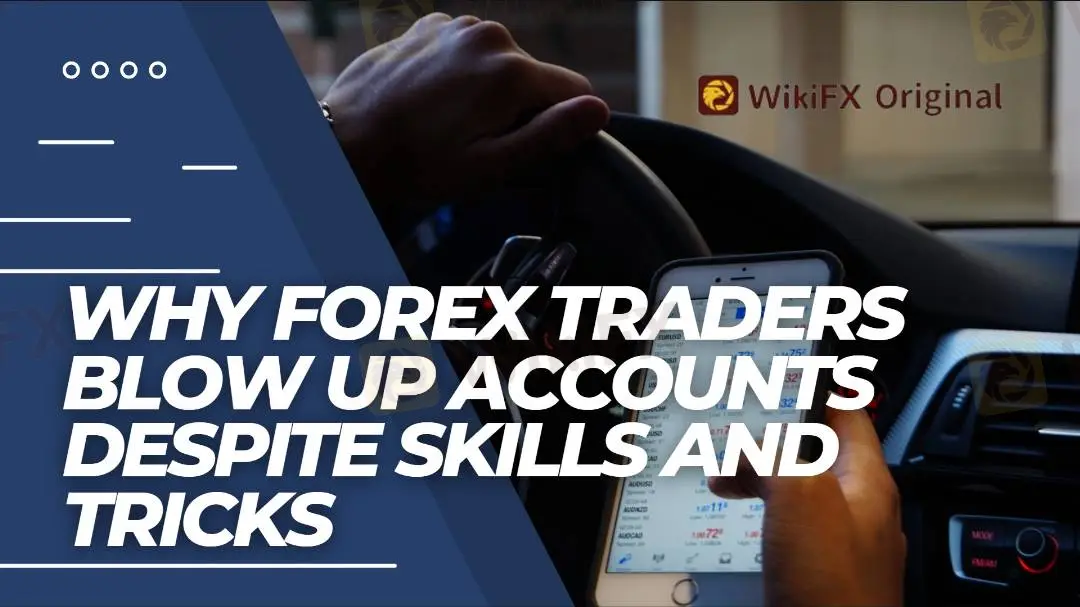Abstract:Blowing up an account is expected in the domestic foreign exchange market. Wise investors learn from their experiences to improve continuously.

In the current domestic foreign exchange market, blowing up an account is not uncommon. Most veteran traders have experienced it. It's an inevitable part of foreign exchange trading. To succeed, you have to pay some tuition fees. However, wise investors learn from their experiences and continuously improve.
This is why some people can bounce back after blowing up their accounts and gradually make gains in the foreign exchange market. However, some investors are not so wise. Even if they use all their skills and tricks to trade, they still end up repeatedly blowing up their accounts. So how can this be avoided? Let's look closely at some reasons and see if you're making any of these mistakes.
1. Trading with the trend and trading with heavy positions.
Trading with heavy positions is a significant cause of blowing up an account. This means using a large percentage of leverage to trade heavily, resulting in low-risk resistance. The mentality is often to get rich quick overnight.
Therefore, it is essential to trade with light positions and small amounts, letting profits accumulate gradually. Some investors may feel that their positions are too small and that they are making money too slowly. However, the essence of investment is stability, not making money through excessive profits. Although everyone's trading skills may differ, heavy position trading is absolutely taboo. Therefore, it is recommended that investors trade with light positions and small amounts, go with the trend, let profits accumulate gradually, and let small gains add up.
2. Sticking to a losing position and refusing to admit mistakes.
This is also a major mistake made by some investors. Once they make a wrong move, they cannot make a timely decision to cut their losses. Instead, they hold on until their account is blown up. They only close their positions when forced to, which is the so-called 'not turning back until hitting the south wall'. In reality, entering the foreign exchange market aims to make money, not to constantly blow up accounts and suffer losses. Therefore, it is vital to first learn how to preserve capital and survive before considering how to make money.
3. Closing positions manually at any time without setting stop-losses.
Some investors blow up their accounts because they do not set stop-losses. After buying, they do not set a stop-loss and just wait anxiously. It's like tying themselves to a car without brakes that could collapse. They hope that the investment will move toward their open position. However, speculation is not gambling. Luck and chance cannot always be with you. To make steady profits, you still need to rely on your own overall strength. Therefore, it is important to eliminate this bad trading habit of having a gambling mentality as soon as possible. Otherwise, there will be endless troubles.
4. Frequent entries and exits and excessive trading.
Some investors do not have a good mentality. For example, if their position does not reach the expected level, they become impatient and want to buy or sell immediately, resulting in only losses and no gains. The most crucial thing in trading is to have a calm mindset. Therefore, it is important to stabilize your mindset and learn from the lessons of blowing up your account to do well in future trades.
5. Blindly following others' trades.
Some investors blindly follow others' 'trade calls' and blow up their accounts. The main reason is a lack of confidence in themselves, being swayed by others' opinions, and treating market analysis teachers as 'gods'. However, due to the uncertainty of the financial market, no one can accurately predict every important market turning point or fluctuation, not even teachers. Blindly following others' trades can easily blow up an account if a mistake is made and not corrected in time. Therefore, developing your investment thinking and being sceptical of others' 'trade calls' is essential.
For currency dealers looking for a dependable and trustworthy exchange, WikiFX is a priceless resource. WikiFX makes it easier to compare and choose forex dealers thanks to its extensive library, open information, and user-friendly layout. dealing professionals can make educated choices and boldly traverse the complicated world of forex dealing by utilizing the power of WikiFX.
Download the WikiFX App on your smartphone to stay updated on the latest news.










